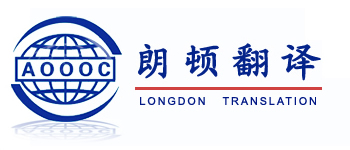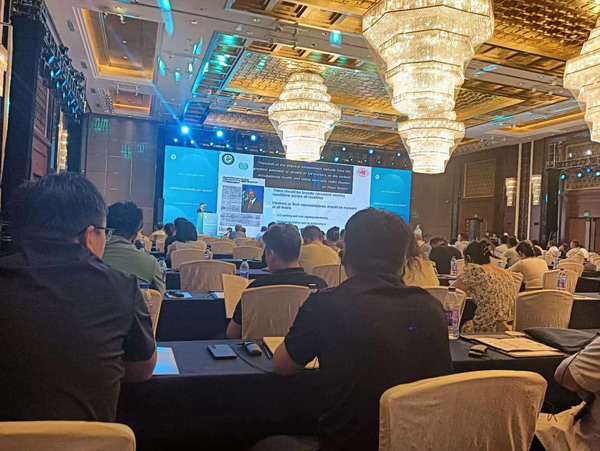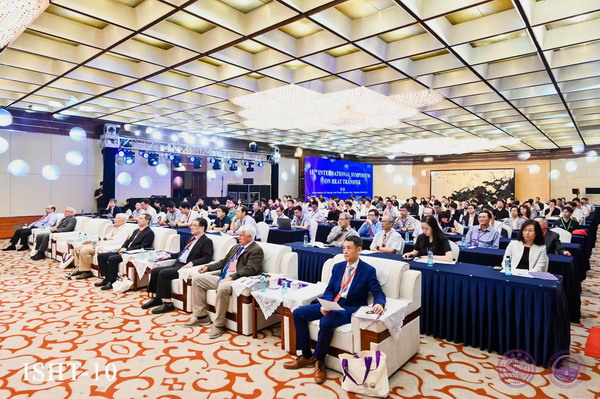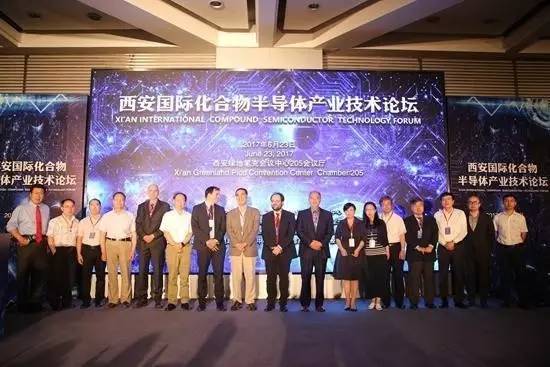Manufacturers at China°ѓs biggest trade show remain cautious on the outlook for the domestic and global economy and say they are unlikely to increase employment significantly, despite some indicators pointing to a rebound in this crucial sector.
‘Џ÷–Зш„оіуµƒўQ(m®§o)“„’єХю…ѕ£ђЕҐ’є÷∆‘м…ћМ¶ЗшГ»(n®®i)ЇЌЗшлHљЫ(j®©ng)Эъ(j®ђ)«∞Њ∞»‘≥÷÷Ф(j®Ђn)…чСB(t®§i)ґ»£ђ≤Ґ±н Њ≤їіуњ…ƒ№іу≈e‘цЉ”»Ћ ÷£ђ±Mє№”––©÷ЄШЋ(bi®°o)п@ Њя@“їкP(gu®°n)жI––ШI(y®®)“—љЫ(j®©ng)≥цђF(xi®§n)ЅЋЈіПЧ°£
Output growth in the manufacturing and construction sector rose from 6.1 per cent in the last quarter of 2016 to 6.4 per cent in the first quarter of this year, helping the Chinese economy expand at a slightly faster pace than expected, according to government data released on Monday.
ЄщУю(j®і)÷№“ї∞l(f®°)≤Љµƒ’юЄЃ?d®°ng)?sh®і)Ую(j®і)£ђ÷∆‘мЉ∞љ®÷юµ»––ШI(y®®)µƒЃa(ch®£n)≥ц‘цйL¬ Пƒ2016ƒкµЏЋƒЉЊґ»µƒ6.1%…э÷ЅљсƒкµЏ“їЉЊґ»µƒ6.4%£ђОЌ÷ъ÷–ЗшљЫ(j®©ng)Эъ(j®ђ)МН(sh®™)ђF(xi®§n)ЅЋ¬‘Єя”ЏоA(y®і)∆Џµƒ‘цЋў°£
Last month°ѓs purchasing managers°ѓ index suggested March was the first month since 2012 in which Chinese factories had not shed jobs.
3‘¬ЈЁµƒ÷∆‘мШI(y®®)≤…ўПљЫ(j®©ng)јн»Ћ÷ЄФµ(sh®і)(PMI)п@ Њ£ђє§ПS”√є§Ѕњ„‘2012ƒк“‘Бн „іќЌ£÷єЬp…ў°£
But factory managers at the semi-annual Canton Fair in Guangzhou, which is expected to attract 20,000 manufacturers and 200,000 buyers from around the world, said they were still concerned about the patchy nature of the global economy as well as domestic overcapacity, despite stronger growth in sectors such as smartphones and government-linked infrastructure.
µЂ‘Џ√њ∞лƒк“їіќµƒПVљїХю(Canton Fair)…ѕ£ђЕҐ’єµƒє§ПSљЫ(j®©ng)јнВГ±н Њ£ђЋыВГ?n®®i)‘М¶»Ђ«тљ?j®©ng)Эъ(j®ђ)µƒ≤їЊщЇвћЎ’ч“‘Љ∞ЗшГ»(n®®i)Ѓa(ch®£n)ƒ№я^ £Є–µљУъ(d®°n)–ƒ£ђ±Mє№÷«ƒ№ ÷ЩC(j®©)°Ґ≈c’юЄЃѕакP(gu®°n)µƒїщµA(ch®≥)‘O(sh®®) ©µ»––ШI(y®®)≥цђF(xi®§n)ЅЋЄьПК(qi®Ґng)Д≈µƒ‘цйL°£±ЊМ√ПVљїХюєј”Л(j®ђ)ќь“эЅЋБн„‘ јљзЄчµЎµƒ2»fЉ“÷∆‘м…ћЇЌ20»fЉ“≤…ўП…ћ°£
°∞The market for electric scooters is saturated and there are still too many producers so overcapacity is a problem,°± said Frank Wang, a sales manager for Aima, one of the biggest makers of the electric scooters ubiquitous in China°ѓs cities. °∞There is pressure on pricing and market share.°±
°∞ƒњ«∞лКД”№З –Иц“—љЫ(j®©ng)пЦЇЌ£ђ…ъЃa(ch®£n)…ћяА «ћЂґа£ђЋщ“‘Ѓa(ch®£n)ƒ№я^ £ «“їВАЖЦо}£ђ°±÷–Зш„оіуµƒлКД”№З÷∆‘м…ћ÷Ѓ“їРџђФ(Aima)µƒдN џљЫ(j®©ng)јнFrank Wang’f£ђ°∞Ѓa(ch®£n)∆Јґ®ГrЇЌ –ИцЈЁо~Јљ√жґЉ”–ЙЇЅ¶°£°±лКД”№З‘Џ÷–Зшµƒ≥« –јпЯoћО≤ї‘Џ°£
He said Aima, which produces 4m scooters a year, is cutting back on capital expenditure as it tries to mitigate flat sales growth.
Ћы’f£ђ√њƒк…ъЃa(ch®£n)400»f≈_лКД”№ЗµƒРџђФ’э‘ЏѕчЬpўY±Њ÷І≥ц£ђ‘ЗИDЊПљвдN џ‘цйLЈ¶Ѕ¶µƒ”∞нС°£
°∞We°ѓre not laying off workers but salary growth is not as fast as in the past and many factories in Wuxi [in Jiangsu province] are facing the same situation,°± he said.
°∞ќ“ВГƒњ«∞Ы]”–≤√ЖT£ђµЂє§ўY‘цйLЫ]”–“‘«∞ƒ«√іњмЅЋ£ђЯoеaµƒ‘Sґає§ПS“≤√ж≈R÷шѕаЌђћОЊ≥£ђ°±Ћы’f°£
Nanfu, China°ѓs biggest producer of alkaline batteries, is also in consolidation mode.
÷–Зш„оіуµƒЙA–‘лК≥Ў…ъЃa(ch®£n)…ћƒѕжЏ(Nanfu)“≤яM(j®ђn)»лЅЋ’ыЇѕƒ£ љ°£
°∞Our long-term focus is on product development and marketing,°± said Russel Kong, international business director of the company, which was previous owned by US consumer goods group Procter & Gamble. °∞I don°ѓt think we will expand capacity significantly.°±
°∞йL∆Џґш—‘£ђќ“ВГ„Ґ÷ЎЃa(ch®£n)∆Јй_∞l(f®°)ЇЌ –Иц†IдN£ђ°±ƒѕжЏЗшлHШI(y®®)Д’(w®і)њВ±O(ji®°n)Russel Kong’f£ђ°∞ќ“’J(r®®n)Юй£ђќ“ВГ≤їХюіуЈщФU(ku®∞)іуЃa(ch®£n)ƒ№°£°±ƒѕжЏ÷Ѓ«∞л`Мў√јЗшѕыўM(f®®i)∆ЈЉѓИF(tu®Ґn)МЪЭН(P&G)∆мѕ¬°£
Mr Kong is expecting moderate sales growth of about 5 per cent this year, similar to last year, and with China°ѓs years of rapid expansion now in the past, Fujian-based Nanfu is trying to expand its global business.
Russel KongоA(y®і)∆ЏљсƒкдN џМҐЬЎЇЌ‘цйLЉs5%£ђ≈c»•ƒкѕаЃФ(d®°ng)°£”…”Џ÷–ЗшљЫ(j®©ng)Эъ(j®ђ)њмЋў‘цйL“—≥…я^»•Хr£ђњВ≤њ‘O(sh®®)‘ЏЄ£љ® °µƒƒѕжЏ’э‘Џ≈ђЅ¶ЌЎ’є»Ђ«тШI(y®®)Д’(w®і)°£
°∞The international market is a big cake and we want to take a small piece,°± he said. °∞By competing with Duracell, Energizer and others, it forces us to get to the same level as them in terms of quality.°±
°∞ЗшлH –Иц «ВАіуµ∞Єв£ђќ“ВГѕлПƒ÷–«–“ї–°ЙK£ђ°±Ћы’f£ђ°∞“™≈cљр∞‘Ќх(Duracell)°ҐД≈Ѕњ(Energizer)µ»ЄВ†О£ђќ“ВГ‘Џў|(zh®ђ)ЅњЈљ√жЊЌµ√≈cЋьВГ∆мєƒѕаЃФ(d®°ng)°£°±
While few factories are planning big increases in their workforce, some manufacturers, such as those making advanced electronic goods or supplying government infrastructure projects, are seeing stronger sales growth and boosting capacity.
лm»їЫ]”–ґа…ўє§ПS”Л(j®ђ)ДЭіуЅњ‘цЉ”»Ћ ÷£ђµЂ“ї–©÷∆‘м…ћ£ђ±»»з÷∆‘мѕ»яM(j®ђn)лК„”Ѓa(ch®£n)∆Јїт≥–љ®’юЄЃїщµA(ch®≥)‘O(sh®®) ©нЧ(xi®§ng)ƒњµƒєЂЋЊ£ђдN џ‘цйLЄьЮйПК(qi®Ґng)Д≈£ђЃa(ch®£n)ƒ№“≤”–Ћщћб…э°£
Panda, which makes smart TVs and smartphones, says business is booming as consumers in China and key export markets such as Southeast Asia and India upgrade to bigger and better screens.
÷«ƒ№лК“ХЇЌ÷«ƒ№ ÷ЩC(j®©)…ъЃa(ch®£n)…ћ–№ЎИ(Panda)±н Њ£ђлS÷ш÷–ЗшЉ∞∆д÷ч“™≥цњЏ –ИцЦ|ƒѕБЖ°Ґ”°ґ»µ»µЎµƒѕыўM(f®®i)’я…эЉЙУQіъ°ҐўПўI∆ЅƒїЄьіуЄьЇ√µƒЃa(ch®£n)∆Ј£ђ∆дШI(y®®)Д’(w®і)’э‘Џ≈о≤™∞l(f®°)’є°£
°∞We°ѓre expanding production by 20 per cent this year to meet growing demand,°± said Liu Quan, a deputy general manager at the Nanjing-based company.
я@Љ“њВ≤њ‘ЏƒѕЊ©µƒєЂЋЊµƒ“їќїє№јн’я’f£Ї°∞љсƒкќ“ВГХю∞—Ѓa(ch®£n)ЅњћбЄя20%£ђ“‘ЭM„г‘цйLµƒ–и«у°£°±

But with factory wages in China having risen rapidly over the past decade, the company is reluctant to expand its workforce significantly, preferring to expand production through the increased use of industrial robots.
µЂ”…”Џ÷–Зш÷∆‘мШI(y®®)є§ўY‘Џя^»• Ѓƒк—ЄЋў…ѕ…э£ђ‘УєЂЋЊ≤ї‘Є“віуЅњ‘цЉ”ЖTє§Фµ(sh®і)Ѕњ£ђЄьГAѕт”ЏЌ®я^Єьґа є”√є§ШI(y®®)ЩC(j®©)∆ч»ЋБнФU(ku®∞)іуЃa(ch®£n)Ѕњ°£
It is a similar story for Huyu, which makes transformers and other electrical products for the national grid and other customers.
≠h(hu®Ґn)”оЉѓИF(tu®Ґn)(Huyu)µƒ«йЫr≈c–№ЎИоРЋ∆°£‘УєЂЋЊЮйЗшЉ“лКЊW(w®£ng)“‘Љ∞∆дЋыњЌСфћбє©„ГЙЇ∆чЇЌ∆дЋылКЪвЃa(ch®£n)∆Ј°£
Austin Zhao, a director of the Zhejiang-based company, said business is good because of the government drive to upgrade the electricity network, part of a bigger push to promote growth through infrastructure.
я@Љ“’гљ≠єЂЋЊµƒ“їќїњВ±O(ji®°n)Austin Zhao±н Њ£ђ”…”Џ’юЄЃ‘ЏЌ∆яM(j®ђn)лКЊW(w®£ng)…эЉЙ£ђєЂЋЊШI(y®®)Д’(w®і)∞l(f®°)’єЅЉЇ√°£лКЊW(w®£ng)…эЉЙ «’юЄЃЌ®я^їщљ®іўяM(j®ђn)љЫ(j®©ng)Эъ(j®ђ)‘цйLµƒ”Л(j®ђ)ДЭµƒ“ї≤њЈ÷°£
But Huyu will not be taking on many more workers.
µЂ≠h(hu®Ґn)”о≤їітЋг’– ’Єьґає§»Ћ°£
°∞We°ѓre expanding our capacity but the impact on labour will be minimal because of more automation,°± he said.
°∞ќ“ВГ’э‘ЏФU(ku®∞)іуЃa(ch®£n)ƒ№£ђµЂ”…”Џ„‘Д”їѓ≥ћґ»ћбЄяЅЋ£ђДЏД”Ѕ¶њВФµ(sh®і)Ћщ №µƒ”∞нСМҐ «ќҐЇх∆䝥µƒ£ђ°±Austin Zhao’f°£




